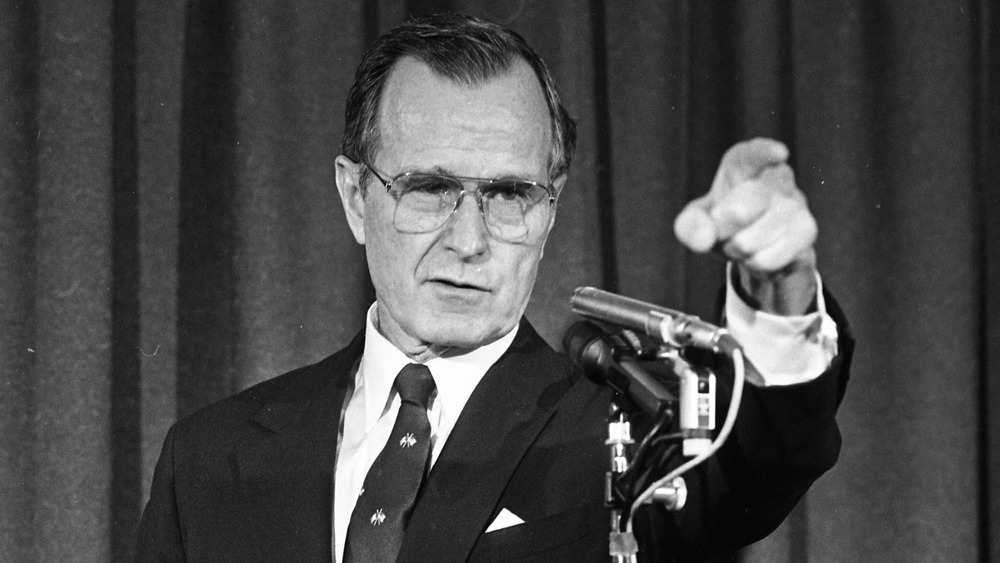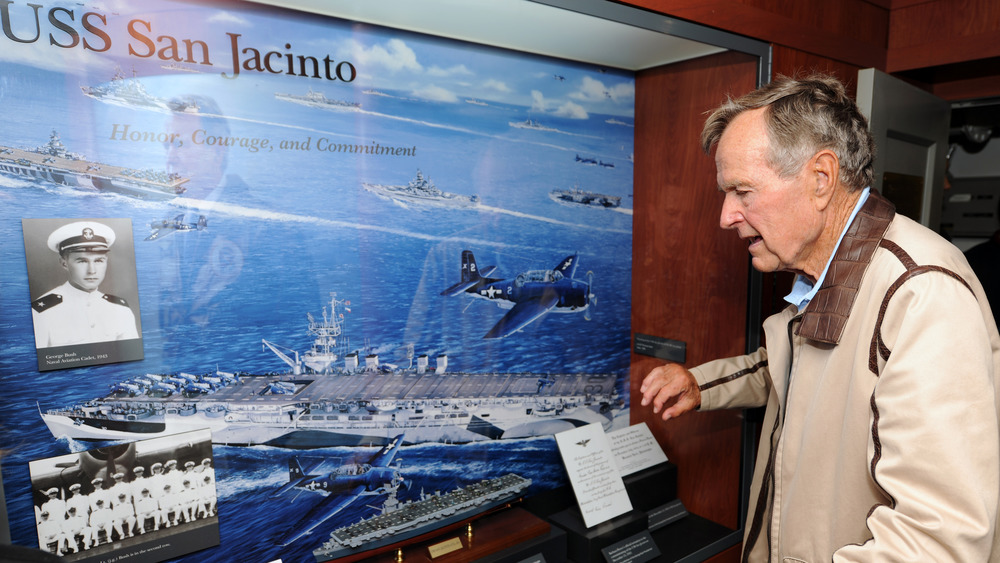The Truth About President George H.W. Bush's Military Career
Twenty-six presidents served in the military prior to their ascension to the Oval Office, according to the U.S. Department of Veterans Affairs, including Civil War veteran President Ulysses S. Grant, and Presidents Dwight Eisenhower and Harry Truman, who served in the World Wars. President George H.W. Bush is so far the last member of that combat club, according to Time magazine. He had an esteemed military career that included winning a Distinguished Flying Cross and three air medals for his service.
He first considered joining the Armed Forces as a student at Phillips Academy in Massachusetts after learning about the horror of Pearl Harbor, according to Naval History and Heritage Command. He finished his schooling, entered the Navy as a Seaman 2nd class, and began training as an aviator at the University of North Carolina at Chapel Hill. As Time said in its article, "He went to war in 1943, barely a man, saying later, 'I was scared but I was willing. I was young, but I was ready. I had barely started living when I began to see men die.'"
He walked away from one crash during his training days. He was assigned to combat in the Pacific Theater, the carrier-based pilot of an Avenger torpedo bomber with two other crew members, relates History.com. He flew 58 combat missions, assigned the USS San Jacinto as his base.
A future president's miraculous rescue
According to Naval History and Heritage Command, "the task force triumphed in one of the largest air battles of the war." Bush's plane was damaged and had to land on water. A destroyer, the USS Clarence K. Bronson, picked up the crew. The second time, Bush amazingly survived an attack on the Japanese-controlled Chichi Jima. As he began his mission to bomb a radio station in the Bonin Islands, gunfire erupted and flames filled his plane before he bailed out over the water.
A U.S. submarine, the USS Finback, found him floating on a life raft, the only survivor from the aircraft. Military.com called Bush "a genuine hero." A year later, he'd leave the military as a lieutenant.
The experience had an impact on his future leadership style. "His was a life-long sense of wonder at the miracle of his survival, and an attendant relish for life itself compounded by an abiding interest in the world and the people around him," said Time.
When Bush died in 2018, NPR pointed out in his obituary that he was the last president who was also a veteran of World War II — a 40-year stretch of history that started with Eisenhower. Geoffrey Kabaservice, author of Rule and Ruin, told NPR, "That's why members of Congress got along better in the old days. A lot of them had fought in World War II and they looked at each other not as partisan enemies, but people who had been comrades in arms."

